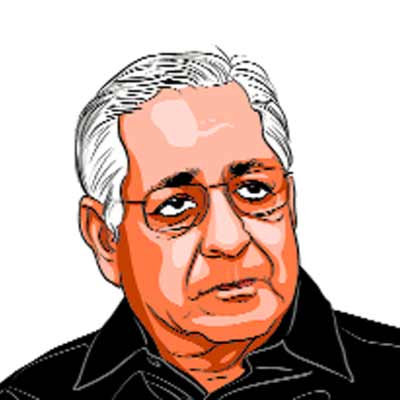Opinion Mercy petitions
The mercy petition of Afzal Guru has at long last been rejected by the government.
Mercy petitions
The mercy petition of Afzal Guru has at long last been rejected by the government. Consequently,the death penalty imposed on him by the Supreme Court stands. The question now is of its execution. It is a misconception that the President exercises his individual judgment in dealing with mercy petitions. According to the Supreme Court,the President has to act in accordance with ministerial advice. A mercy petition is not meant to be a further appeal from the Supreme Court judgment which has attained finality. The relevant considerations in disposal of a mercy petition inter alia are: the time spent by the convict in jail and the balance period of the sentence,his age,his medical condition,eg is he suffering from terminal cancer,his jail record and other related issues. If there are cogent reasons for rejecting a mercy petition,the political fallout of its rejection is an extraneous consideration which must be eschewed because that would set a bad precedent and lead to politicisation of the issue.
No fixed time limit is prescribed by the Constitution for disposal of mercy petitions. However,our Supreme Court has ruled that they should be disposed of with the utmost expedition. The rationale is that keeping a person on the death row for an inordinately long period causes acute mental and emotional stress and that is tantamount to infliction of cruel and unusual punishment. The consequence in such cases is that the death sentence is replaced by life imprisonment. Cynics wonder whether the inordinate delay of five years was to enable Afzal Guru to challenge his death sentence on this ground.
Growing Taliban menace
Responsibility for the recent shooting down of the American aircraft in which there were American and NATO personnel has been claimed by the Taliban which confirms its strong presence and power in the region. It is probable that flight plan of the aircraft was leaked to the Taliban by a sympathetic mole. The attack on the Mehran naval airbase near Karachi was attributed by Pakistans official statement to people within the ranks having links with the extremists.
This raises serious concerns about the safety of Pakistans growing nuclear arsenal and the danger of any part of it falling into the hands of the Taliban or Islamist jihadis. If that happens,the consequences are too frightening to contemplate. Nuclear weapons would be unleashed as a call of divine duty primarily against India and other perceived enemies of Islam amongst whom the US tops the list. Therefore,preventive action is of utmost urgency. NBC News reported that US has plans to snatch and grab Pakistans nuclear weapons if the President believes they are a threat to the US. The threat should be viewed in its global dimension. Arguably,the US snatch and grab plan would violate Pakistans sovereignty and be contrary to international law. However,survival of humanity should be the overriding consideration.
Obsession with colour
Colour is an obsession with some people. It is also the cause of conflict when people are discriminated against because of the colour of their skin. Before the enactment of our Constitution,Section 298 of the Government of India Act 1935,prohibited discrimination inter alia on the ground of colour. In our draft Constitution,colour was mentioned as a prohibited ground of discrimination. Sardar Patel expressed surprise because he thought Indians do not discriminate on the basis of colour. Good old Sardar was obviously unaware of the matrimonial ads in national dailies which emphasise fair skin as an essential attribute for the potential bride. Experience shows that we Indians are not free from racial bias on account of colour. Derogatory remarks are made about blacks who are referred to as hapshis or kalias. The obsession of the Indian male with white skin especially if it is of foreign extraction is pervasive. The warped notion is that fair skin is a gateway to the good life. Should we amend our Constitution and make colour a prohibited ground of discrimination in Article 15? If Sardar were with us,he would probably agree.


